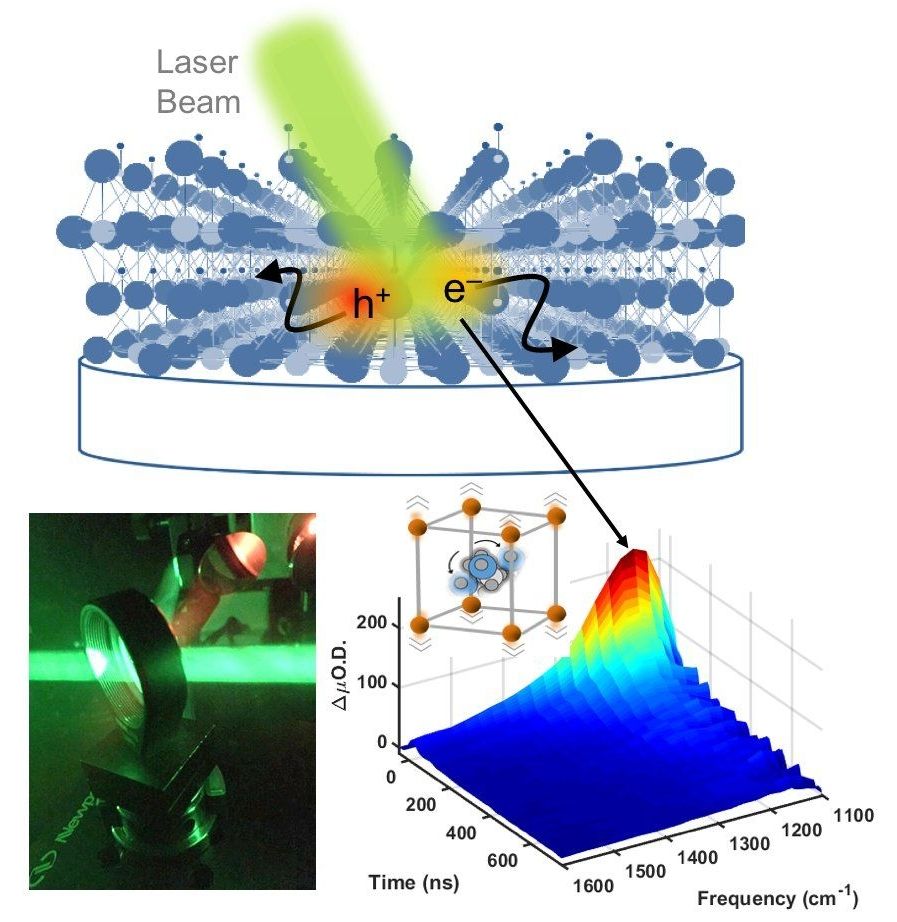New insight into how a certain class of photovoltaic materials allows efficient conversion of sunlight into electricity could set up these materials to replace traditional silicon solar cells. A study by researchers at Penn State reveals the unique properties of these inexpensive and quick-to-produce halide perovskites, information that will guide the development of next generation solar cells. The study appears September 27 in the journal Chem.
“Since the development of silicon solar cells, which today can be found on rooftops and roadsides, researchers have sought new types of photovoltaic materials that are easier to process into solar cells,” said John Asbury, associate professor of chemistry at Penn State and senior author of the study. “This is because construction of silicon solar cells is complex and hard to scale-up to the level that would be needed for them to generate even 10 percent of our total demand for electricity.”
Because of these complications, researchers have been searching for less expensive alternatives to silicon solar cells that can be processed more quickly. They are particularly interested in materials that can be processed using a technique called roll-to-roll manufacturing, a technique similar to those used to print newspapers that enables low-cost, high-volume production. Such materials must be processed from solution, like ink printed on a page.










Comments are closed.